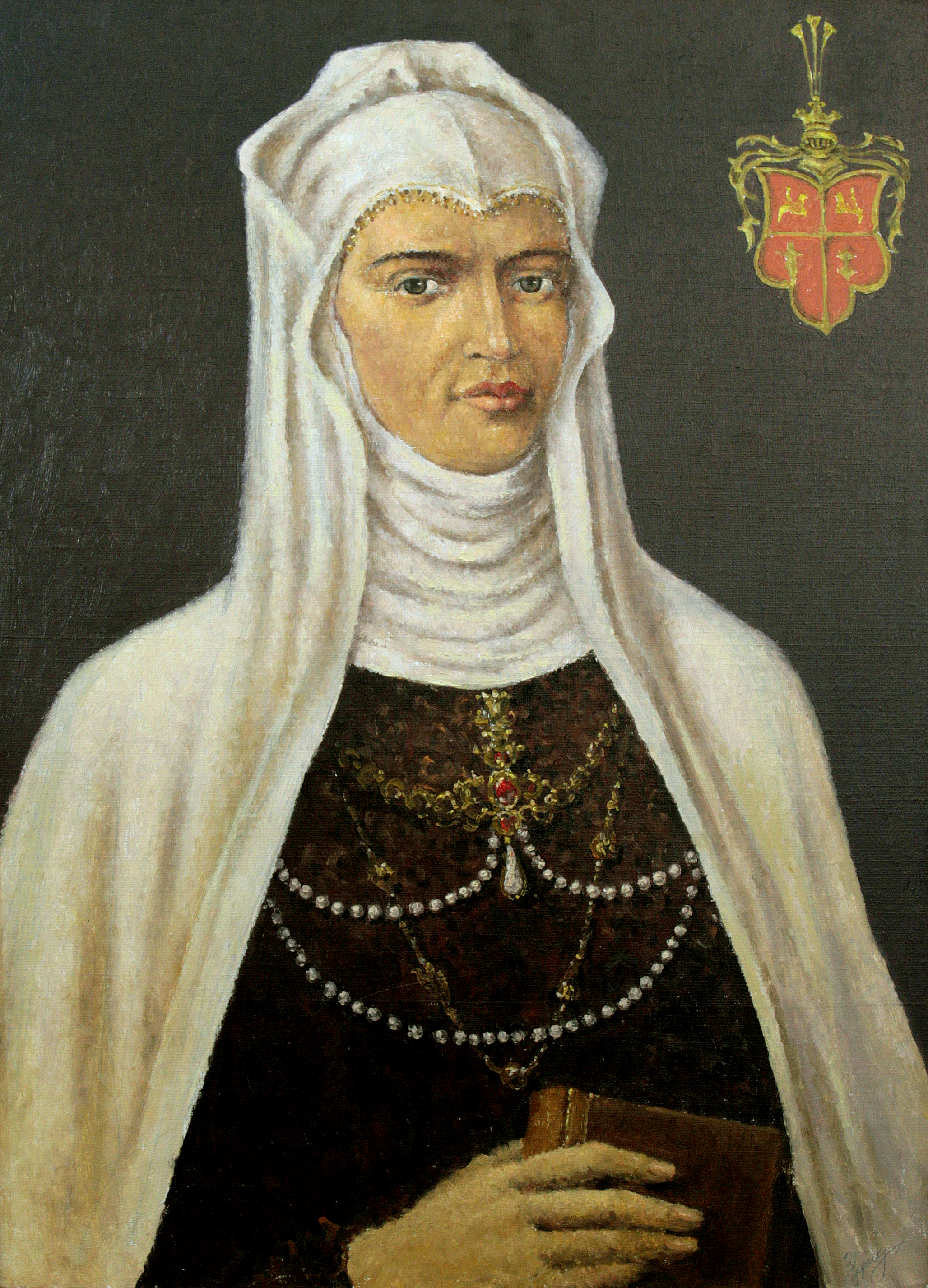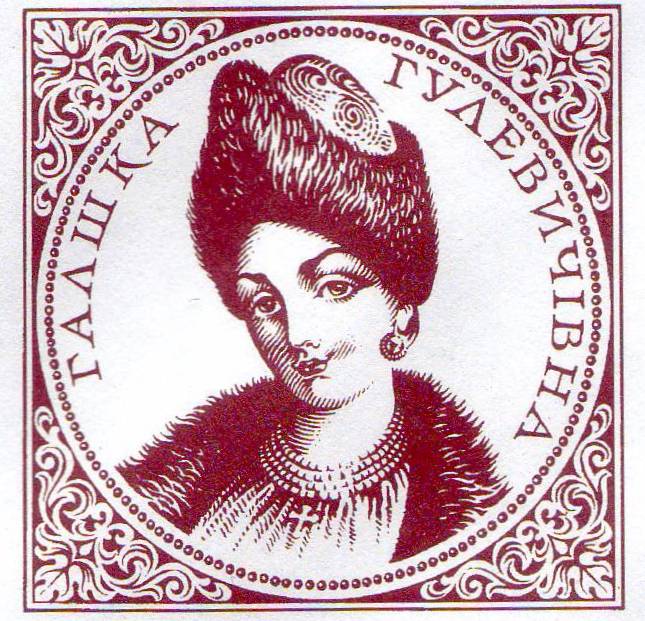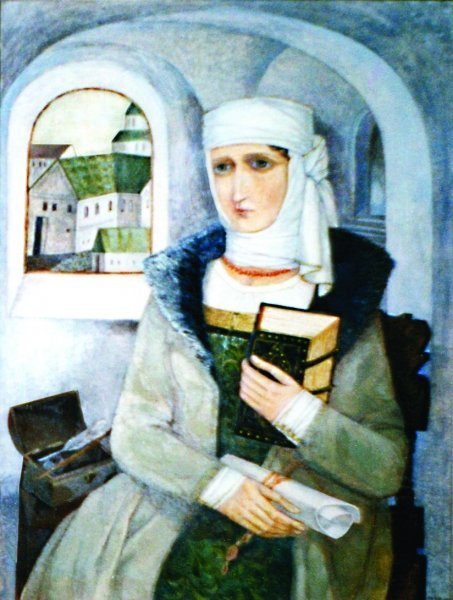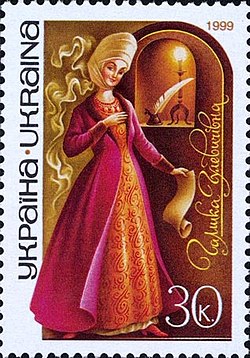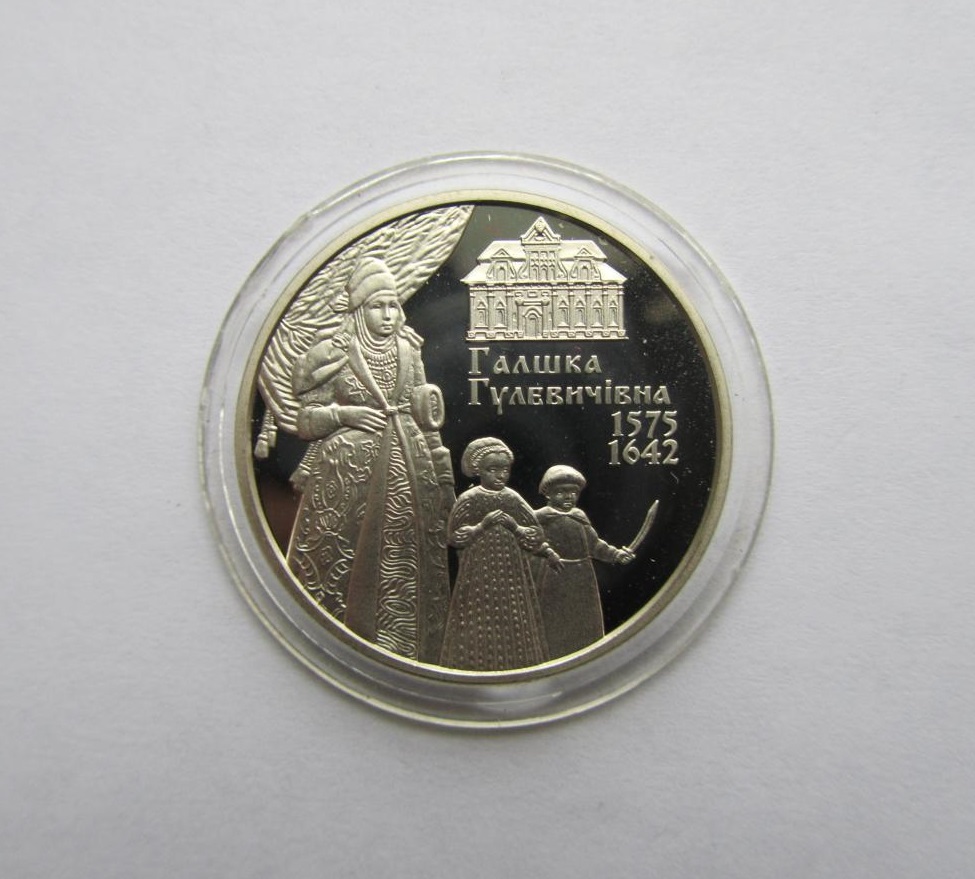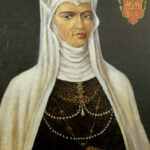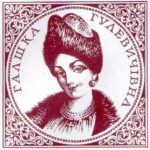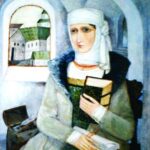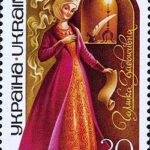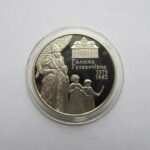Galshka Gulevychivna
Hulevychivna Halshka (Yelyzaveta) Vasylivna, from Novyna coat of arms (born supposedly in 1577, location N/A — 1642, Lutsk) — the founder of Kyiv Brotherhood School and Kyiv Brotherhood Monastery, patron of education. Originally her roots come from an ancient Ukrainian gentry of the Hulevych family known from the beginning of the sixteenth century. They belonged to wealthy nobility and held high government positions in Volyn.
Fedir Hulevych, grandfather of Halshka Hulevychivna, was the viceroy of the city of Volodymyr, later ordained Bishop of Lutsk under the name of Theodosius. Her father Vasyl Hulevych held the governments of Deputy Elder and Governor of Volyn land. Halshka Hulevychivna, together with her brothers, studied at home. The graduates of Lviv Brotherhood School were her teachers.
In 1594 she married Khrystophor Potii, son of Ipaty Potii who was one of the main initiators of the Union of Brest, later the Unitarian metropolitan of Kyiv and Galicia. Soon becoming a widow, Halshka Hulevychivna brought up her daughter Kateryna alone. In 1601-1602, Halshka married for the second time to Stefan Lozka, a wealthy Ukrainian nobleman from Beresteishchyna, Mozyr Marshal and Kyiv Pocillator. Together with her husband and son Mykhailo, she lived in a family estate in Podil, Kyiv, not far from the city hall.
On October 14, 1615, she gave her donation (grant), and on October 15 she made a record about it in Kyiv Magistrates’ Books. According to a copy of the record for the books of the second half of the 18th century (the original and earlier copies are unknown), H. Hulevychivna presented her estate with everything belonging to it to Kyiv Brotherhood with the idea of a monastery, school, and shelter for pilgrims to be established there.
A few years after the death of her husband Stefan Lozka, she moved to Lutsk, where she also took active part in the activities of Lutsk Orthodox Brotherhood, supported the school, the orphanage, and the hospital. Buried in the Cathedral of the Exaltation of the Cross in Lutsk.
In 1997, NaUKMA held a contest on the creation of an artistic image of H. Hulevychivna, and there was also held an exhibition. Some supposed portraits from that contest are presently exhibited at the NaUKMA. On January 27, 2015, on the occasion of the 400th anniversary of Kyiv-Mohyla Academy, the National Bank of Ukraine introduced a coin of 2 hryvnias dedicated to Halshka Hulevychivna.
It is possible that H. Hulevychivna’s founding was influenced by the academic circle of the Kyiv-Pechersk Lavra and, in particular, by Job Boretsky, one of Kyiv’s intellectuals, a former teacher and rector of Lviv Brotherhood School, an advocate of development of education in the city.
Thanks to the donation of H. Hulevychivna, the idea of an educational institution in Kyiv “for both children of noblemen and bourgeois” acquired its practical embodiment: the initiators of Kyiv Brotherhood got a mansion with the land in Lower Kyiv, that is, in Podil, for establishing a monastery and a school. A Pechersk monk, the founder of a number of monasteries in the Ukrainian lands, Isaiah Kopynsky, whose name is mentioned by H. Hulevychivna in her grant, was engaged in the building up of the monastery.
Presumably, the school was located in the house of H. Hulevychivna and S. Lozka immediately after the announcement of the grant, but in the donation document no buildings in the “courtyard with a plaza” were mentioned. Thus, by donating her estate, H. Hulevychivna enabled the opening of Kyiv Brotherhood School – a phenomenon that, after the reform of Petro Mohyla, was to play a key role in the history of Ukrainian education and culture in general.
